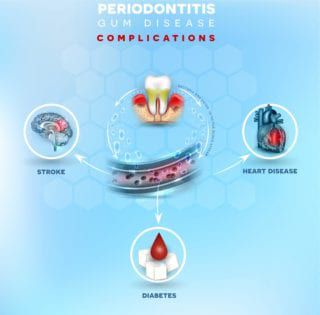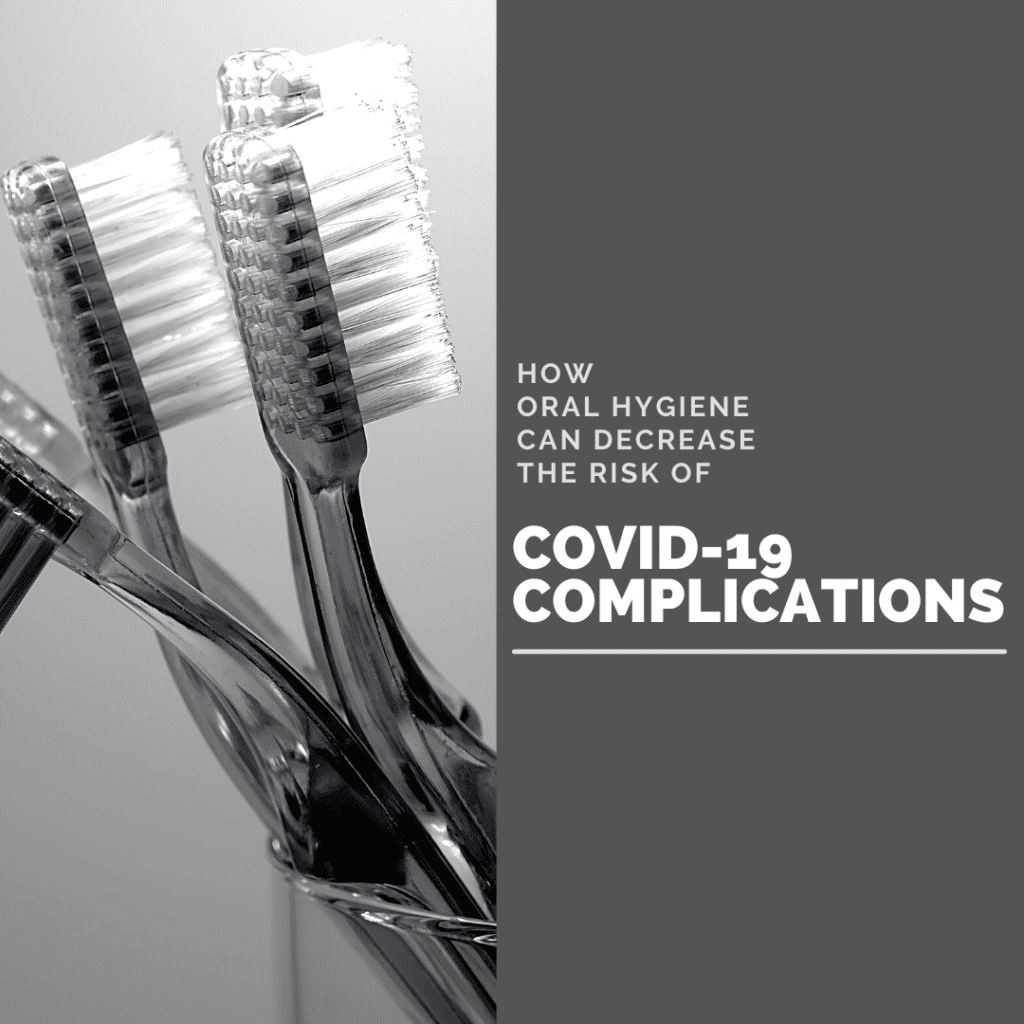When it comes to staying healthy during the COVID-19 pandemic, most people think of doing things like wearing a mask, washing their hands, and social distancing. Additionally, some people may even try to eat a balanced diet, take immune-boosting supplements, or even exercise regularly to maintain their health. However, not as many people are concerned with their oral health, which can be problematic considering their overall health is directly affected by oral health.
The most common dental issues, tooth decay and gum disease, are both caused by excess bacteria that accumulate in the mouth. Although some bacteria is naturally present and essential, it is important to practice proper brushing and flossing, as well as regular dental cleanings, in order to keep bacterial populations under control. Otherwise, bacterial populations will continue to rise, leading to tooth decay, gum disease, and other possible complications to your overall health.

In fact, when there are excessive amounts of bacteria inside the mouth due to a lack of proper oral hygiene, these bacteria can actually enter the bloodstream and travel to other locations in the body. This is because excessive amounts of bacteria weaken the mouth’s defense system over time until the mouth is unable to fight the infection. Once bacteria enter the bloodstream, they can cause pneumonia, heart attack, endocarditis, stroke, respiratory problems, pregnancy complications, or clogged arteries, depending on where they travel to. Additionally, there is a close relationship between diabetes and gum disease.
Recent research has also indicated a possible link between poor oral hygiene and the severity of COVID-19 infections. In the article entitled, “Could there be a link between oral hygiene and the severity of SARS-CoV-2 infections”, researchers evaluated the potential link between the SARS-CoV-2 virus and bacterial load. They note that past respiratory viral infections, such as the 1918 influenza pandemic, predisposed patients to bacterial superinfections and that this could increase the risk of death, as well as complications. In fact, it was noted that 50% of people who died from severe COVID-19 also had secondary bacterial infections. Around 80% of COVID-19 patients in the ICU also exhibited excess amounts of bacteria in coordination with the virus.

This is believed to be due to the fact that lower respiratory infections are caused either by the inhalation of microorganisms or the aspiration of oral secretions containing bacteria associated with tooth decay and gum disease. The article notes, “…inadequate oral hygiene can increase the risk of inter-bacterial exchanges between the lungs and the mouth, increasing the risk of respiratory infections and potentially post-viral bacterial complications”. Simply stated, when bacteria from the mouth are aspirated into the respiratory system, they can cause or worsen COVID-19 complications such as pneumonia or sepsis.
Furthermore, it has been found that the comorbidities for COVID-19, such as diabetes, hypertension, and heart disease, are also associated with high amounts of the oral bacteria responsible for periodontal disease. In fact, the article notes that, “patients with periodontal disease are at a 25% increased risk of cardiovascular disease, triple the risk of diabetes mellitus, and a 20% increased risk of hypertension”. Although more research is needed, researchers hypothesize that complications associated with COVID-19, as well as the aforementioned conditions, could be closely related to the amount of oral bacteria present.
Overall, it is recommended to maintain proper oral hygiene practices as a way of decreasing the risk of contracting COVID-19, as well as preventing possible complications associated with the virus. Proper daily oral hygiene such as brushing twice a day and flossing daily help to remove plaque and bacteria from the oral cavity to prevent bacterial populations from growing. Additionally, regular dental cleanings are essential to remove plaque, tartar, and bacteria from hard to reach areas that may be missed during one’s daily oral hygiene routine. Therefore, in addition to wearing a mask and practicing social distancing, you may want to add a dental cleaning to your defense against COVID-19.



